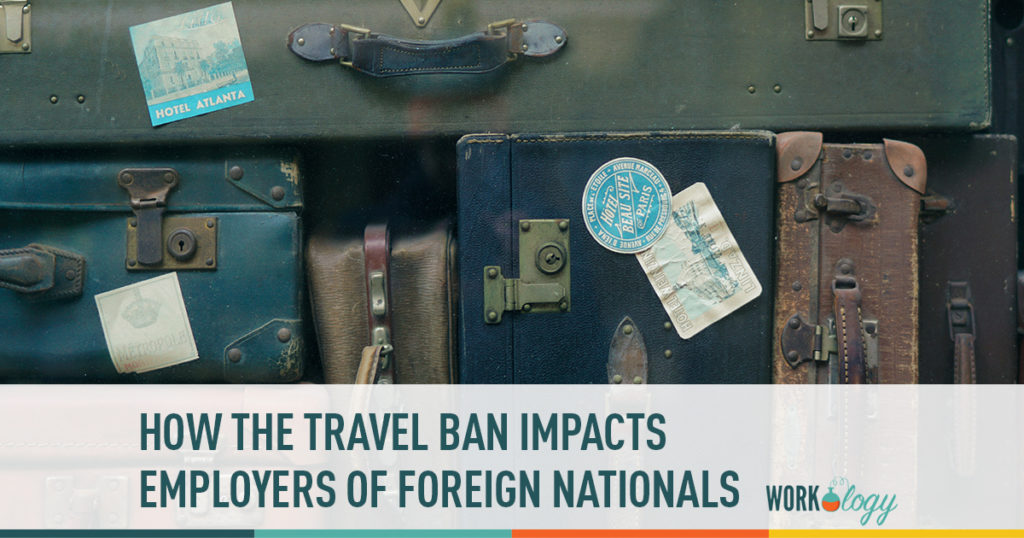President Trump’s executive order temporarily barring travel to the United States from the following predominantly muslim nations—Iran, Syria, Libya, Somalia, Sudan, and Yemen—has been partially upheld by the U.S. Supreme Court. The ruling will keep in place part of the lower court injunction but will reinstate a travel ban for foreign nationals “who lack any bona fide relationship” with any person or entity in the United States.
How the Travel Ban Impacts Employers
The practical upshot of this is that foreign nationals of these 6 countries should expect that the travel ban will now be enforced against them, thereby barring their travel to the U.S. for a period of 90 days, unless they are able to demonstrate a relationship with a person (e.g., a family member) or an entity (e.g., school, employer, host organization) in the U.S. In other words, the travel ban may not be enforced against individuals from these 6 countries so long as the individual can prove they have a family relationship with someone in the U.S. or a relationship with a U.S. entity, (i.e. attendance at a U.S. university or employment with a U.S. employer). While other relationships may also qualify, none were specifically mentioned in the decision.
Foreign nationals traveling to the U.S. from Iran, Syria, Libya, Somalia, Sudan and Yemen should now plan to travel with evidence of their family relationships in the U.S. (i.e. affidavits, birth certificates, marriage certificates), or evidence of their enrollment in a U.S. school (i.e. student visa, Form I-20), or employment (work visa, visa petition approval notices, pay stubs, letters verifying employment). Additionally, travelers from these countries should be prepared to answer questions about their U.S. family members or employment.
The Supreme Court will hear arguments on the merits of the executive order in October 2017. In the meantime, if you have any questions on how this ruling may impact you or your employees, please feel free to contact us.







